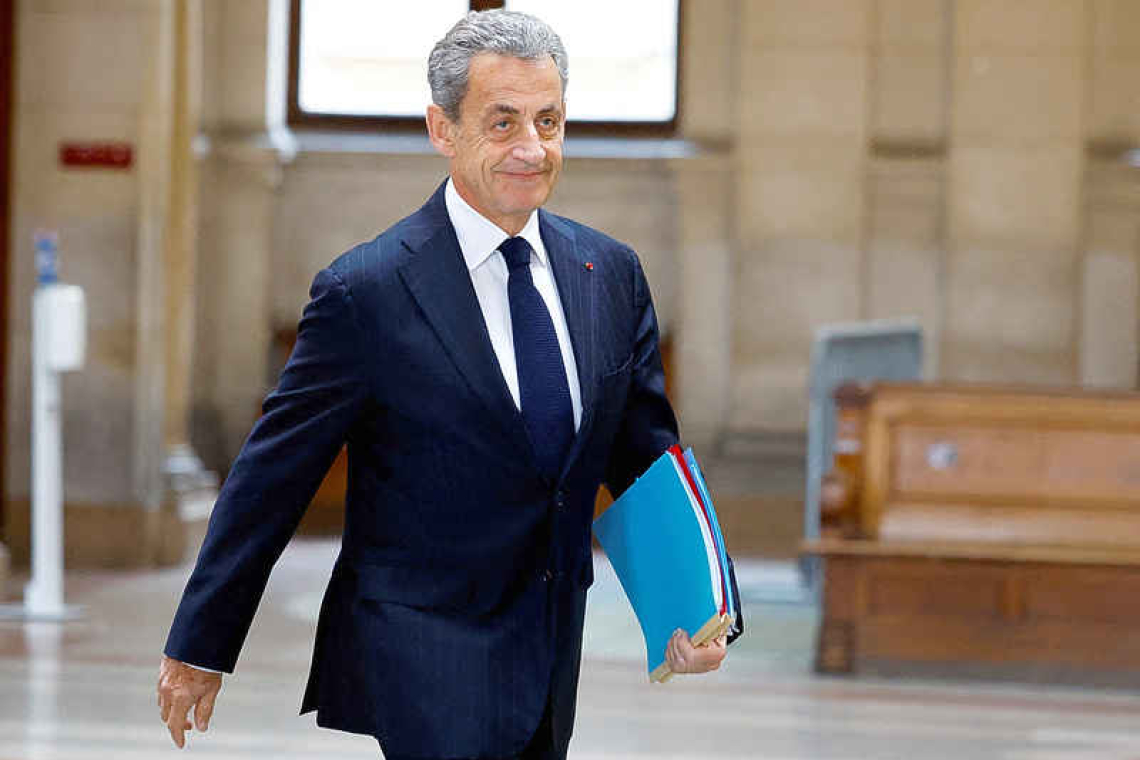PARIS--The Cour de Cassation, France's highest court, upheld on Wednesday former President Nicolas Sarkozy's conviction for corruption and influence peddling.
Sarkozy had appealed against the 2021 conviction for corruption and influence peddling, in which he had been handed a three-year prison sentence. Two of the years were suspended and Sarkozy would wear an electronic monitoring bracelet instead of going to prison for the last year.
Patrice Spinosi, lawyer for Sarkozy, said Sarkozy would appeal to the European Court for Human Rights to challenge the ruling."The challenge that I will be bringing to the European Court of Human Rights may, alas, lead to a condemnation against France," wrote Sarkozy on social media network X.
"I want to once again state that I am clearly innocent," he added.
Spinosi added Sarkozy would comply with the ruling which forces him to wear an electronic bracelet but would continue to use all legal means available to him to prove his innocence.
Sarkozy, a conservative who remains an important figure in French politics even after leaving office in 2012, had been found guilty by a lower court of trying to bribe a judge and of peddling influence in exchange for confidential information about a probe into his 2007 campaign finances.The court found that Sarkozy conspired to secure a job in Monaco for a judge in exchange for inside information about an investigation into allegations that Sarkozy had accepted illegal payments from L'Oreal heiress Liliane Bettencourt. The judge, Gilbert Azibert, was also convicted for corruption and influence peddling.
Sarkozy is expected to stand trial next year on corruption and illegal financing charges related to alleged Libyan funding of his successful 2007 presidential bid. Sarkozy denies all wrongdoing.If convicted in the Libya case, Sarkozy could face up to 10 years in prison.
Sarkozy's predecessor, Jacques Chirac, a fellow conservative, is the only other president in modern French history to be convicted by a court. Chirac was found guilty of corruption in 2011, four years after he left office.







